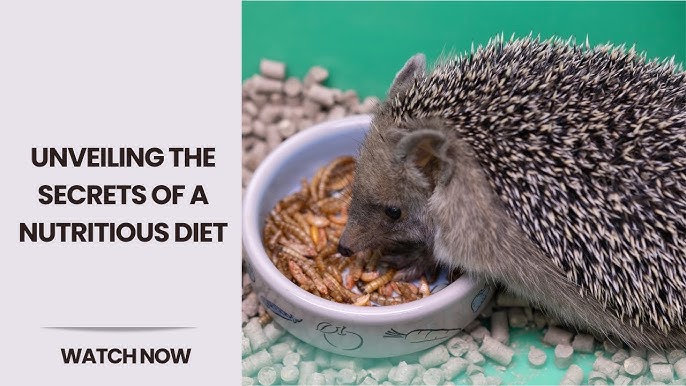Large breed puppy dog food is specifically formulated to support the growth and health of larger dog breeds. It contains balanced nutrients to promote strong bones and joints.
Choosing the right dog food for large breed puppies is crucial for their development. These puppies grow rapidly, requiring a diet rich in protein, calcium, and essential fatty acids. Proper nutrition helps prevent developmental issues common in larger breeds, such as hip dysplasia.
Look for options designed to control growth rates, ensuring puppies don’t grow too quickly. Quality ingredients like real meat, vegetables, and whole grains provide essential vitamins and minerals. Always consult your veterinarian for tailored advice. Feeding your large breed puppy the right food sets the foundation for a healthy, active life.
Table of Contents
ToggleChoosing The Right Food
Choosing the right food for your large breed puppy is very important. Large breed puppies grow quickly and need special nutrition. The right food helps them grow strong and healthy. This guide will help you understand what to look for in large breed puppy dog food.
Nutritional Needs
Large breed puppies have unique nutritional needs. They require specific nutrients to support their growth. Here are some key points to consider:
- Protein: Should come from high-quality sources. Look for meat as the first ingredient.
- Calcium and Phosphorus: These minerals are vital for bone growth. The right balance prevents skeletal issues.
- Fats: Healthy fats provide energy and support brain development.
- Vitamins and Minerals: Essential for overall health and immune support.
Consider the following table for recommended nutrient levels:
| Nutrient | Recommended Amount |
|---|---|
| Protein | 25-30% |
| Fat | 10-15% |
| Calcium | 1-1.5% |
| Phosphorus | 0.8-1% |
These nutrients help large breed puppies grow at a healthy rate. Too much growth can cause health problems.
Ingredient Quality
The quality of ingredients in puppy food matters a lot. Good ingredients lead to better health. Always check the label for these factors:
- Real Meat: Look for real meat as the first ingredient. Avoid foods with fillers.
- No Artificial Additives: Choose food without colors or preservatives. Natural ingredients are better.
- Whole Grains: Brown rice or oats are good. They provide energy and fiber.
- Vegetables: Carrots and peas add nutrients and flavor.
Understanding the ingredient list helps you make better choices. Avoid foods with vague terms like “meat by-products.”
Pros And Cons
Choosing large breed puppy food has its benefits and drawbacks. Here are some pros and cons to consider:
| Pros | Cons |
|---|---|
| Supports healthy growth | Can be more expensive |
| Helps prevent health issues | Some brands may not be reliable |
| Offers balanced nutrition | Limited options for specific needs |
Weighing these pros and cons helps you make the best choice for your puppy. It's crucial to choose wisely for their health and happiness.

Benefits Of Large Breed Formulas
Large breed puppies need special food to grow healthy. Their growth is different from smaller breeds. Using the right food helps them grow strong and stay active. Large breed formulas offer many benefits that support their unique needs.
Growth Control
Growth control is vital for large breed puppies. They grow quickly, but too much weight can harm their bones and joints. Special formulas help manage their growth rate. Here are some key features:
- Balanced nutrition: Large breed puppy food has the right mix of proteins and fats.
- Controlled calories: Less calories help prevent rapid weight gain.
- Larger kibble size: This encourages slower eating, which can aid digestion.
Here’s a comparison of standard puppy food versus large breed puppy food:
| Feature | Standard Puppy Food | Large Breed Puppy Food |
|---|---|---|
| Protein Content | Higher | Moderate |
| Caloric Density | High | Controlled |
| Kibble Size | Small | Larger |
Choosing the right food helps ensure they grow strong without extra weight. This balanced approach keeps them healthy and happy.
Joint Health Support
Joint health support is crucial for large breed puppies. Their joints face stress from rapid growth. Special nutrients in large breed formulas help protect their joints. Important components include:
- Glucosamine and chondroitin: These support cartilage health and joint function.
- Omega fatty acids: These help reduce inflammation and improve mobility.
- Controlled calcium and phosphorus levels: This prevents bone growth issues.
Here's a look at the benefits of these nutrients:
| Nutrient | Benefits |
|---|---|
| Glucosamine | Supports joint structure |
| Chondroitin | Helps maintain joint health |
| Omega-3 Fatty Acids | Reduces joint pain |
Using large breed puppy food helps keep their joints healthy. This support allows them to play and run freely as they grow.
Common Ingredients To Look For
Choosing the right food for your large breed puppy is very important. Proper nutrition helps them grow strong and healthy. Understanding the common ingredients in dog food is a great place to start. Focus on proteins and healthy fats to support their growth.
Proteins
Proteins are essential for your puppy's growth and development. They help build strong muscles and keep them active. Look for high-quality protein sources in the ingredients list. Here are some common protein sources:
- Chicken – A great source of lean protein.
- Beef – Rich in essential amino acids.
- Fish – Contains omega-3 fatty acids and is easy to digest.
- Eggs – Packed with protein and nutrients.
Check the label for the protein percentage. Large breed puppies need about 22% protein in their food. A good protein source should be listed first in the ingredients. Here’s a simple table to help understand protein sources:
| Protein Source | Benefits |
|---|---|
| Chicken | Lean and nutritious |
| Beef | High in amino acids |
| Fish | Rich in omega-3 |
| Eggs | Nutrient-rich protein |
Healthy Fats
Healthy fats are important for energy and overall health. They help your puppy absorb vitamins and support brain development. Look for fats that are good for your puppy's growth. Common sources of healthy fats include:
- Fish oil – High in omega-3 fatty acids.
- Chicken fat – Provides energy and flavor.
- Flaxseed oil – Great for skin and coat health.
Aim for dog food that contains about 8% to 15% fat. This helps maintain a healthy weight. Here’s a quick table of healthy fat sources:
| Fat Source | Benefits |
|---|---|
| Fish Oil | Boosts skin and coat health |
| Chicken Fat | Provides energy and taste |
| Flaxseed Oil | Supports heart health |

Foods To Avoid
Choosing the right food for large breed puppies is very important. These puppies grow quickly and need special care. Certain foods can harm their health. Knowing what to avoid helps keep them safe and healthy. Two main areas to consider are fillers and artificial additives.
Fillers
Fillers are ingredients that do not provide real nutrition. They often take up space in dog food without offering benefits. Puppies need high-quality food that helps them grow strong. Here are some common fillers to avoid:
- Corn gluten meal: Low in nutrients, often used to bulk up food.
- Wheat flour: Can cause allergies and offers little nutrition.
- Soybean meal: May lead to digestive issues and allergies.
Choosing food that avoids these fillers is important. Look for brands that list real meat as the first ingredient. This ensures your puppy gets the best nutrition possible.
Artificial Additives
Artificial additives are chemicals added to dog food. They can enhance flavor or color but may harm your puppy. Many puppies can be sensitive to these additives. Here are some common artificial additives to be aware of:
- Preservatives: Such as BHA and BHT, can be harmful over time.
- Coloring agents: Can cause allergies and serve no purpose.
- Flavor enhancers: Often made from chemicals that may upset stomachs.
Always check the ingredient list on dog food packaging. Look for natural preservatives like vitamin E instead. Keeping your puppy away from artificial additives is a smart choice for their health.
Feeding Guidelines
Large breed puppies need special food to grow strong and healthy. Their diet plays a big role in their development. Choosing the right food ensures they get the right nutrients. Feeding guidelines are important for large breed puppies. Understanding portion sizes and meal frequency helps owners provide the best care.
Portion Sizes
Portion sizes are very important for large breed puppies. Feeding too much can cause health issues. Here are some key points to remember:
- Follow the food label for guidance.
- Measure food using a standard cup.
- Adjust portions based on the puppy's age and weight.
Below is a simple table to help with portion sizes:
| Age (Months) | Weight (lbs) | Daily Food Amount (cups) |
|---|---|---|
| 2-4 | 5-15 | 2-3 |
| 4-6 | 15-30 | 3-4 |
| 6-12 | 30-80 | 4-6 |
Check the puppy's weight regularly. Adjust the portions as they grow. Consult a vet for the best advice on portion sizes.
Meal Frequency
Meal frequency is another important factor for large breed puppies. Young puppies need to eat more often than adults. Here are some helpful tips:
- Feed puppies 3-4 times a day until they are six months old.
- Switch to 2 meals a day after six months.
- Keep a consistent schedule for feeding times.
Having a routine helps puppies feel secure. It also aids in digestion. Here’s a simple feeding schedule:
| Age (Months) | Meals per Day |
|---|---|
| 2-4 | 4 |
| 4-6 | 3 |
| 6-12 | 2 |
Always provide fresh water with each meal. Monitoring their eating habits helps detect any issues early. Regular vet check-ups ensure puppies stay healthy.
Transitioning To New Food
Large breed puppies need special food to grow strong and healthy. Transitioning to new food can be tricky. It's important to do this carefully. A good change helps puppies feel better and thrive.
Gradual Changes
Making changes to a puppy's food should happen slowly. Sudden changes can upset their tummy. Here are some tips for a smooth transition:
- Start with a mix of old and new food.
- Gradually increase the new food over a week.
- Observe your puppy’s reaction to the new food.
- Stick to the same feeding times each day.
The following table shows a simple plan for changing food:
| Day | Old Food (%) | New Food (%) |
|---|---|---|
| 1-2 | 75 | 25 |
| 3-4 | 50 | 50 |
| 5-6 | 25 | 75 |
| 7+ | 0 | 100 |
Following this plan helps puppies adjust well. It also makes sure they enjoy their new food.
Monitoring Health
After changing food, watch your puppy closely. Look for signs of good health. Happy and healthy puppies are active and playful.
- Check their energy levels. Do they play as usual?
- Look at their coat. Is it shiny and clean?
- Watch for any tummy issues like diarrhea or vomiting.
- Observe their eating habits. Are they eating well?
Take advice from Pet Expert Dr Marty
ESA Pet is an online service that helps you get a legitimate ESA letter
Pet vitamin supplements and grooming products
Keeping a record of your puppy’s health helps too. Write down any changes you notice. This can be helpful for your vet visits.
Healthy puppies show clear signs of well-being. Always consult a vet if you have concerns.
Frequently Asked Questions On Large Breed Puppy Dog Food
What Is Large Breed Puppy Dog Food?
Large breed puppy dog food is specially formulated to meet the nutritional needs of large breed puppies. It contains balanced protein, fats, and essential nutrients to support healthy growth. This type of food helps prevent obesity and joint issues, promoting overall health and well-being in larger breeds.
How Much Should I Feed My Large Breed Puppy?
Feeding amounts vary based on age, weight, and activity level. Typically, large breed puppies require about 2 to 4 cups of food daily, divided into three meals. Always consult your veterinarian for personalized feeding guidelines. Adjust portions as your puppy grows to ensure optimal health and development.
When Can I Switch To Adult Dog Food?
You can usually switch to adult dog food around 12 to 18 months of age. Large breeds mature slower, so it’s essential to monitor their growth. Transition gradually over a week to avoid digestive issues. Consult your veterinarian for specific advice tailored to your puppy’s breed and growth rate.
What Ingredients Should Be In Large Breed Puppy Food?
Look for high-quality protein sources, healthy fats, and essential vitamins. Ingredients like chicken, lamb, or fish should be at the top of the list. Whole grains and vegetables are also beneficial. Avoid fillers and artificial additives to ensure a nutritious diet for your growing puppy.
Conclusion
Choosing the right food for your large breed puppy is essential for their growth and health. Quality ingredients promote strong bones and optimal energy levels. Always consult your veterinarian for personalized recommendations. With the right nutrition, your puppy will thrive and grow into a healthy, happy adult dog.
Invest in their future today.















3 Responses
good reviews
Thank you for your reviews
got a lot for my dog whos name is hulk